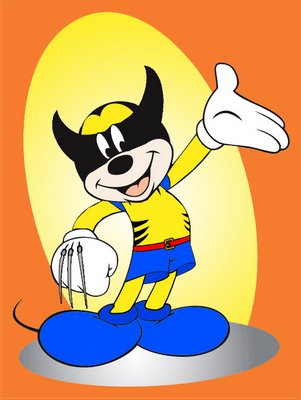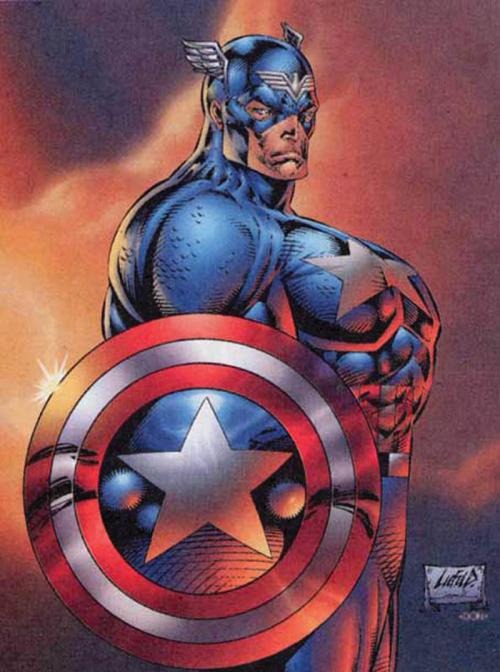Disney = The Impossibility of Being Interesting

Of Mice and Multi-Billion-Dollar Buyouts
posted by PAUL CONSTANT on MON, AUG 31, 2009 at 5:18 PM
I taught myself how to read on Superman and X-Men comics (and a whole lot of Charlie Brown collections) when I was three years old. I was an avid comics fan (never a collector—I've never bagged or boarded a comic book in my life) until I stopped reading monthly comics back in 1995, when I started paying my own rent. Comics, in particular Marvel Comics, had also become staggeringly awful, and I just couldn't take it anymore. In 1991, Marvel became a publicly owned company, and so their first allegiance became to their shareholders, as opposed to their fans. Comics seemed to be planned and produced based on some sort of weird sales-figure calculus. It was a depressing time to be a funnybook fan.
In 2000, I started reading a lot of comics again, particularly the trade paperbacks you can buy in bookstores. I worked in a bookstore and I got a huge discount, so why not? I mostly read what the kids used to call "alternative comics," even though names like Chris Ware and Dan Clowes are arguably better-known nowadays than "mainstream" names like Brian Michael Bendis.
But I started buying Marvel Comics again in July of 2001, when Grant Morrison and Frank Quitely took over the X-Men. Suddenly, the X-Men weren't wearing tights anymore, and they didn't fight people in tights, either. They opened up international branches and primarily concerned themselves with acceptance. Morrison put away the tired racial allegories that the book had been about since the mid-sixties and instead made the X-Men into an allegory about the fight for gay rights, which seemed at once brave and obvious.
And other Marvel Comics were growing up, too: There was X-Statix, which was a series about mortality, racial blending, reality television and celebrity (a resurrected Princess Diana was even going to become a member of the team before a Marvel executive shot down the plan). Axel Alonso, the editor of Preacher (which has always been and will probably always be my favorite comic series of all time) came to Marvel and immediately set Garth Ennis and Steve Dillon up on a weird, satirical run on The Punisher. Superheroes stopped wearing costumes and most of them dropped their secret identities. The books went from generic superhero fiction to really good genre fiction—crime fiction, sci-fi, even romance comics—and anything seemed possible.
Of course, it wasn't possible, and this deal highlights the impossibility of Marvel Comics ever being interesting ever again.
The full aritcle is here.